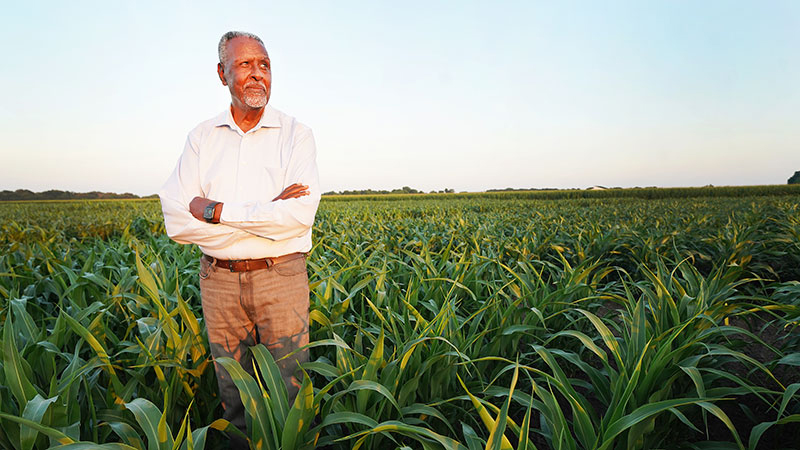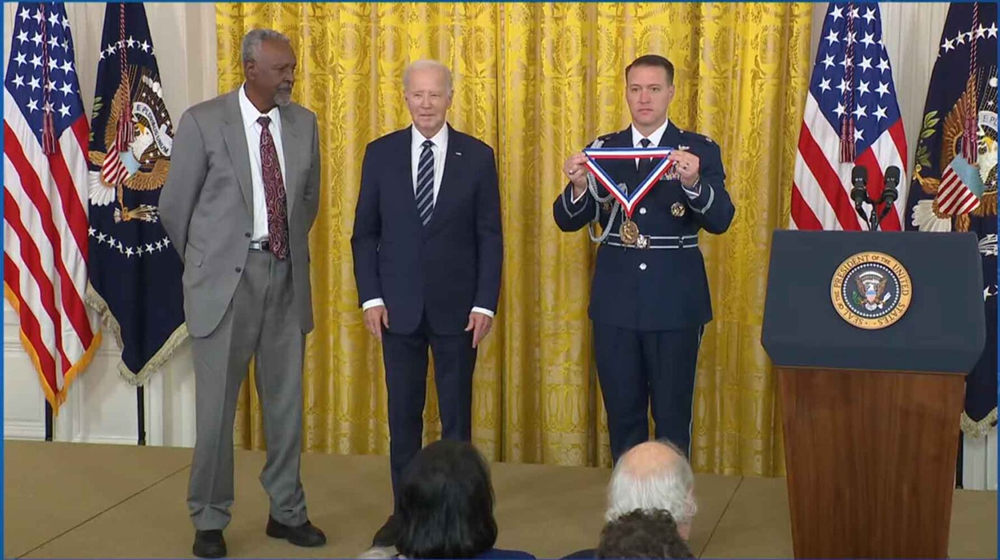October 25, 2023 (GMN) - President Joe Biden on October 24, 2023, awarded the National Medal of Science to Ethiopian-born -scientist Gebisa Ejeta.
Distinguished Professor of Plant Breeding and Genetics and International Agriculture, executive director of the Purdue Center for Global Food Security, and Purdue University Presidential Fellow for Food Security and Sustainable Global Development. The award is the highest recognition the nation bestows upon scientists.
Ejeta studies sorghum, an ancient grain used widely as a food source for humans and livestock. He received the 2009 World Food Prize for his research in creating sorghum hybrids that are resistant to both severe drought and the destructive parasitic Striga weed. The resulting dramatic increase in sorghum production has helped feed hundreds of millions of people in sub-Saharan Africa.
"Gebisa Ejeta is one of the most impactful geneticists in the world, a remarkable leader at Purdue in food security research, and a role model of perseverance for all Boilermakers. Our university celebrates another prestigious and richly deserved honor, bestowed by the president of the United States, to Gebisa, and I am delighted to join him on behalf of our university at the White House ceremony today," said Purdue University President Mung Chiang. "With this latest exciting news, Purdue faculty and alumni have received 19 National Medals of Science, of Technology and Innovation, of Humanities or the Presidential Medal of Freedom, including three current faculty members."
According to the White House, Ejeta was honored for outstanding contributions to the science of plant genetics. By developing sorghum strains that withstand droughts and parasites, he has improved food security for millions. His advocacy for science, policy, and institutions as key to economic development "has lifted the fortunes of farmers and strengthens the souls of nations."
Ejeta has served at the highest advisory levels of science and national policy, including as special advisor to the administrator for the U.S. Agency for International Development, as science envoy of the U.S. State Department, and as a member of the National Academy of Sciences Board on Agriculture and Natural Resources. He also has been a member of the U.S. Board for International Food and Agricultural Development and the U.N. Secretary’s Scientific Advisory Board.
Ejeta is an advocate for purpose-driven research. His own work is focused on elucidating the genetic and physiological mechanisms of important sorghum traits. Grain sorghum is the world’s fifth-most important cereal crop. With its superior drought tolerance and broad adaptation, sorghum is grown worldwide, serving as a staff of life for over 500 million people in developing countries, and is the second-most important feed crop in the United States. Ejeta's research addresses some of the most crucial traits of sorghum production and utilization, including nutritional quality; drought and cold tolerance; and resistance to pests, diseases, and Striga. He also investigates concerns of global biodiversity, gene flow, and the use of sorghum as a biofuel crop.
The goal of Ejeta's sorghum research program is the development, release, and deployment of improved sorghum cultivars for both food and feed use. His sorghum research is generally characterized by its sustained commitment to translational approaches that generate products and technologies from research findings to impact farm productivity and the eventual utilization and profitability of the crop postharvest. He utilizes a variety of research tools and works in interdisciplinary collaboration with a number of other scientists and programs. Ejeta has released many inbred lines and improved sorghum varieties and hybrids for use both in the United States and in Africa. His cultivars have been successfully deployed in several African countries.
Graduate education, mentoring of professionals, and developing partnerships are integral components of his sorghum research program. Ejeta has trained and mentored a large cadre of domestic and international students and professionals at Purdue and in collaboration with other institutions. He has led many collaborative agricultural research and development projects, catalyzed the creation of public and private seed enterprises, and facilitated the formation of public-private partnerships in collaborating countries.
Ejeta was born and raised in a small rural community in west-central Ethiopia and was awarded the nation’s National Hero Award, Ethiopia’s highest honor, in 2009. He earned his master’s and Ph.D. in plant breeding and genetics from Purdue, where he has been a College of Agriculture faculty member and researcher since 1984.





